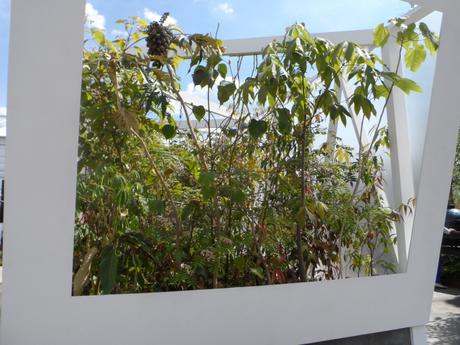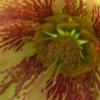
Crug Farm exhibit – Chelsea 2014
All the plants were grown from seed collected by them in the wild
I started to write this blog post by saying that politics and policy have little impact on my gardening world but as soon as I wrote those words I realised what a nonsense they are. Of course politics and policy have an impact. You only have to look at the rhetoric you encounter when you mention peat and using it in the garden to realize that even when we potter in our gardens we can’t escape Whitehall, the EU or campaign groups.
In fact horticulture seems to have featured a lot in the News recently with the controversial Garden Bridge in London and Boris Johnson’s controversial ping-pong approach to funding and the reduction of funding for Kew Gardens, one of the most revered botanical gardens in the world. Last year there was concern about proposed EU legislation that had the potential to reduce the range of seed available to gardeners by insisting that any plant distributors wanted to sell seed had to have the seed registered, at no small cost. This would obviously significantly impact on the growing number of small seed distributors in this country and it seems that the vehemence of the UK and Dutch gardening world may be stopped or delayed this legislation coming into force.
This week I learnt about the The Nagoya Protocol on Access to Genetic Resources and Fair and Equitable Sharing of Benefits Arising from their Utilisation (Nagoya Protocol). At my local HPS meeting Bob Brown of Cotswold Garden Flowers was telling us about the protocol which has arisen out of the UN Convention on Biological Diversity (CBD) which all countries, except the US, have signed up to, ratified in the UK in 1994 (I’m not 100% sure if it is indeed all countries). The Convention was drawn up to protect biodiversity and to ensure sustainable use of genetic resources. Under it the native plants (or animals, insects, etc – for the purposes of this post I will use the term plants) of a country are that country’s property, the country has sovereign rights, and this means that any commercial benefits deriving from them are the property of that country. You can see the logic behind this if you consider the possible financial gains from the production of a native plant should it be discovered to have some amazing medicinal use. The Convention has been hard to enforce and so the Protocol has been agreed with the legislation coming into force in the UK in October 2014. Under the Protocol you need to have the country’s government’s permission to sell/benefit from the use of that country’s plants.When you start to really think about this the ramifications have the potential to be hugely significant to a mere amateur gardener such as myself. In recent years I have bought wild collected seeds from an Eastern European seed collector and I have bought plants from a number of nursery men/plant hunters which have presumably be grown from wild collected seed. The UK’s floral diversity can be directly attributable to centuries of plant collectors exploring the world, our native flora has been diluted for so long it is hard to say what is actually a native UK plant.Chatting on twitter with some plant hunters and a representative of Plant Heritage it seems that the consequences of the Protocol in the UK are not yet clear. There are useful summaries on the RHS website and on the Plant Heritage blog. Current expectation is that the enforcement of the protocol will be dealt with by the National Measurements Office (I didn’t know we had such a body) and it is expected that there will be a light touch. However, it is possible that if you plan to sell non-native plants you will need to be able to show that they were available commercially prior to October 2014 and if not you will need to have, or be able to refer to, the documentation and records to show that the plant’s native government gave permission for the plant material to be collected.For me this seems to herald a curtailing in the not too distant future of the tradition of plant hunting which some of us gardeners follow vicariously savouring the results with those special acquisitions. It also means that some overseas suppliers may have to curtail their export of native plant seed outside their country if they are relying on collecting it in the wild. As to the impact on the various seed exchanges which include wild collected seed – well the jury is well and truly out on that one.During my twitter conversation it was even muted that as the Protocol stipulates that you cannot share information about the native plants then this could be interpreted to mean that anyone delivering a talk on a plant hunting trip would be in breach of the protocol. How on earth would anyone police such a rule, it seems completely unenforceable to me!?It will be interesting to watch the horticultural world to see if there are indeed the repercussions that some are worried about. If there are then we may find that the diversity of plants we have access to stops – would this be such a bad thing, I really don’t know but it makes for an interesting conversation when you get some passionate plants people together.
